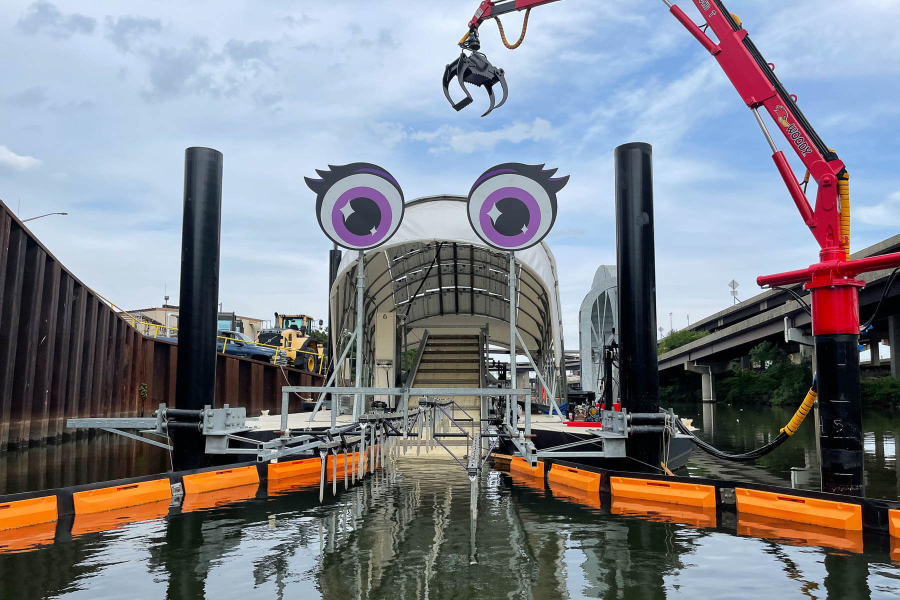Gwynnda the Good Wheel works her magic on West Baltimore

The Trash Wheel family in Baltimore, Maryland includes a captain, a professor, the original “Mr. Trash Wheel” and now, a witch!
As of June 2021, Gwynnda the Good Wheel of the West has been stationed at the mouth of the Gwynns Falls, gobbling up scores of litter that trickle in from West Baltimore and threaten to enter the Middle Branch of the Patapsco River.
It’s estimated that Gwynnda will pick up 300 tons of trash each year, which is more than the other three wheels combined. Like her family members, Gwynnda runs fully on hydro and solar power, boasting 72 solar panels that sit just behind her googly eyes.
The Trash Wheels are an initiative of the Waterfront Partnership of Baltimore, who installed their first wheel in 2014 at the Inner Harbor. Gwynnda is one component of Baltimore’s “Reimagine Middle Branch” project, which aims to reconnect community members to the waterfront. Currently, people can fish, kayak, hike and bike through parks along Middle Branch, though litter is a constant problem and an eye-sore that deters recreation.
All throughout the Chesapeake Bay watershed, litter weakens marine ecosystems and contaminates the water. Many forms of debris take hundreds, if not thousands, of years to decompose, while plastics can break down into microplastics that threaten marine life, contaminate drinking water and even mix with other chemicals to pose additional ecosystem challenges.
At the Chesapeake Bay Program, our Plastic Pollution Action Team has just completed the first iteration of an ecological risk assessment showing how striped bass in the Potomac River are impacted by microplastics, as well as a science strategy to address gaps in information concerning the effects of microplastics on the Bay and its watershed. In the coming years, this research will help us understand the greater impacts of plastic pollution on ecological and human health, and potentially inform development of future policy and management actions that will reduce the presence of plastic in the environment.
Want to help keep your local river litter-free? Consider hosting a trash pickup event, purchase reusable products like metal straws and water jugs and recycle materials whenever possible. For all other ideas on how to keep waterways clean, visit our Tips and Tricks page. Gwynnda and her trash wheel siblings will thank you!

Comments
Good trash wheel
Thank you!
Your comment has been received. Before it can be published, the comment will be reviewed by our team to ensure it adheres with our rules of engagement.
Back to recent stories